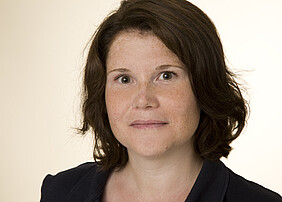Abstract
Early life stress (ELS) is associated with increased vulnerability for diseases in later life, including psychiatric disorders. The role of ELS on the offspring’s health in adulthood is an area urgently requiring further research. Animal models have implicated epigenetic regulation of gene expression to mediate the effects of early life stress on adult behaviour and health. Prenatal, perinatal and early postnatal maternal stress is thought to negatively affect fetal development, birth outcomes, and infant development. Furthermore, early-life exposure to adverse environmental cues during “critical” windows of time in prenatal and early postnatal life period could predispose the individual for somatic and mental diseases (the so called “stress related disorders”) and may reprogram the function of the hypothalamus-pituitary-adrenal (HPA) axis in the offspring. Glucocorticoids are suggested to be a common link between prenatal maternal stressors and infant’s health: prenatal maternal stress effects are thought to be mediated via maternal-placental-fetal neuroendocrine mechanisms. Of maternal plasma cortisol, 10 -20 % may cross the placenta.
Maria Gilles will give an overview of the literature in the field of early life stress and present data from the prospective human cohort POSEIDON study (Pre-, peri- and pOstnatal Stress in human and non-human off-spring: a translational approach to study Epigenetic Impact on DepressiON, Project 1:“Epigenetic effects of exposure to pre-, peri- and postnatal stress assessed in early infancy”). The cohort of 400 mother-child dyades is well-characterized with regard to pre-, peri- and postnatal adversities and infant and maternal HPA system regulation. One of the objectives of the POSEIDON study is to examine the effects of maternal distress during pregnancy on fetal development and birth outcomes (birth weight / body length / head circumference) in humans prospectively, focusing on different stress factors and cortisol as one mediating the mechanism of the association between maternal distress and birth outcomes.
Selected paper:
Nieratschker V, Massart R, Gilles M, Luoni A (shared first authorship), Suderman MJ, Krumm B, Meier S, Witt SH, Nöthen MM, Suomi SJ, Peus V, Scharnholz B, Dukal H, Hohmeyer C, Wolf IA, Cirulli F, Gass P, Sütterlin MW, Filsinger B, Laucht M, Riva MA, Rietschel M, Deuschle M, Szyf M. (2014): MORC1 exhibits cross-species differential methylation in association with early life stress as well as genome-wide association with MDD. Transl Psychiatry. 2014 Aug 26; 4:e429.
CV
Maria Gilles completed her post-graduate clinical training at the Department of Psychiatry and Psychotherapy (under the lead of Prof. Dr. Dr. Fritz Henn and Prof. Dr. Andreas Meyer-Lindenberg) at the Central Institute of Mental Health, Medical Faculty Mannheim / Heidelberg University. Since June 2007 she works as a certified psychiatrist at the Department of Psychiatry and Psychotherapy, Central Institute of Mental Health. Since July 2013 she has primarily specialised on the treatment of psychiatric disorders during the peripartal period („Spezialambulanz für psychische Erkrankungen in der Zeit um die Geburt“).
Since Dec 2000 she is a research assistant in the clinical research group „Stress-related disorders“ at the Central Institute, headed by Prof.(apl) Dr. Michael Deuschle, where the research group concentrates on stress physiology, physical sequelae of psychiatric disorders, sleep medicine, epigenetics and long-term effects of early environments.
Between Aug 2010 and Dec 2013 she was one clinical investigator and the coordinator of the prospective human cohort POSEIDON Study (Pre-, peri- and pOstnatal Stress in human and non-human off-spring: a translational approach to study Epigenetic Impact on DepressiON, Project 1: “Epigenetic effects of exposure to pre-, peri- and postnatal stress assessed in early infancy”).
The lecture will take place on October 6, 2015 from 17:15 to 18:15 hours in lecture hall H1, Turmgebäude.
Host: Prof. Ulrich Schweiger
Department of Psychiatry and Psychotherapy
University of Lübeck


